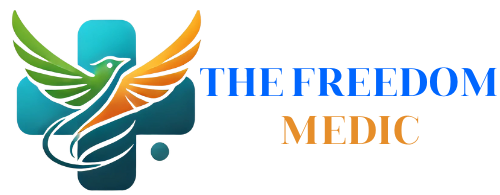Indecision and uncertainty can be paralyzing, but gaining clarity on your goals and making confident decisions is an essential skill for success. In this blog post, you will learn the key steps to setting clear, achievable goals and making confident decisions that align with your values and priorities. By following these proven strategies, you will be able to confidently navigate through challenging choices and stay focused on what truly matters to you. Whether you are facing a career decision, personal goal, or major life change, these tips will empower you to take decisive action with unwavering confidence.
Defining Your Goals
As you begin the process of setting clear goals for yourself, the first step is to define what you want to achieve. This means taking the time to really think about what is important to you, what you are passionate about, and what you want to accomplish. When you have a clear understanding of what your goals are, you are better equipped to make decisions that will help you achieve them.
The SMART Framework
One of the most effective ways to define your goals is by using the SMART framework. This approach encourages you to set goals that are specific, measurable, achievable, relevant, and time-bound. By following these criteria, you can ensure that your goals are clear, actionable, and attainable. This framework provides a roadmap for setting goals that will ultimately lead to success.
Long-Term vs Short-Term Goals
When defining your goals, it’s important to consider the distinction between long-term and short-term goals. Long-term goals are the big, overarching objectives that you want to achieve over an extended period of time, while short-term goals are the smaller, more immediate steps you need to take to work towards your long-term goals. By setting a combination of both long-term and short-term goals, you can create a clear path forward and stay motivated as you make progress towards your ultimate aspirations.
The Decision-Making Process
If you want to make confident decisions, you need to follow a clear decision-making process. This will help you gather the necessary information, consider all options, and weigh potential outcomes. By doing so, you can make well-informed decisions that align with your goals and values. For more information on the importance of confident decision-making in your career, check out “The Importance of Confident Decision-Making in Career Development”.
Gathering Information
When it comes to making decisions, gathering information is crucial. This includes conducting research, seeking input from others, and considering relevant data. By gathering all the necessary information, you can ensure that your decisions are based on factual and relevant information, rather than assumptions or emotions.
Weighing Options and Potential Outcomes
Once you have gathered the necessary information, it’s time to weigh your options and potential outcomes. This requires careful analysis and critical thinking. Consider the potential consequences of each decision, as well as how they align with your goals and values. By thoroughly weighing your options, you can make decisions with confidence and clarity.

Strategies for Making Decisions with Confidence
Unlike impulsive decision-making, having a clear set of strategies can help you make decisions with confidence. One strategy is to cultivate clarity, which allows you to make decisions based on well-defined goals and values. You can learn more about this in the article “Mastering the Art of Decision-Making: Cultivating Clarity …”.
Reducing Decision Fatigue
One way to make decisions with confidence is to reduce decision fatigue. This means simplifying your daily choices by creating routines and automating repetitive tasks. By doing so, you can conserve mental energy and focus on more critical decisions, eliminating the overwhelm of too many choices.
Handling Uncertainty and Risk
When faced with uncertainty and risk, it’s essential to gather all the necessary information and weigh the potential outcomes. By carefully assessing the risks and considering the consequences, you can make well-informed decisions, mitigating potential negative outcomes and increasing your confidence in the chosen path.
Implementing Your Decisions and Tracking Progress
Despite making a decision, it can sometimes be challenging to put it into action. You may have the best intentions, but the execution can be difficult. This is where having a clear plan and tracking your progress becomes vital. By implementing your decisions and tracking your progress, you can ensure that you stay on course and achieve your goals. For more guidance on setting goals to build self-confidence and fulfillment, you can refer to How To Set Goals For Building Self-Confidence & Fulfillment.
Creating an Action Plan
Once you’ve made a decision, it’s essential to create a detailed action plan. This plan should outline the specific steps you need to take to bring your decision to fruition. Break down the process into smaller, achievable tasks, and set deadlines for each one. By having a clear action plan, you can stay focused and motivated as you work towards your goal.
Monitoring and Adjusting Your Approach
As you implement your decisions, it’s crucial to monitor your progress regularly. Keep track of the milestones you’ve reached and the challenges you’ve encountered. This will allow you to identify any obstacles or setbacks and make adjustments to your approach as needed. By staying proactive and adaptable, you can overcome challenges more effectively and continue making progress towards your goals.
How to Set Clear Goals and Make Decisions with Confidence
On the whole, setting clear goals and making confident decisions is essential for your personal and professional success. By following the steps outlined in this guide, you can ensure that your goals are specific, measurable, achievable, relevant, and time-bound. Furthermore, by trusting your instincts and gathering the necessary information, you can make decisions with confidence, knowing that you have considered all relevant factors. Remember, confidence in decision-making comes from practice and self-assurance, so continue to cultivate these skills as you work towards accomplishing your goals.




